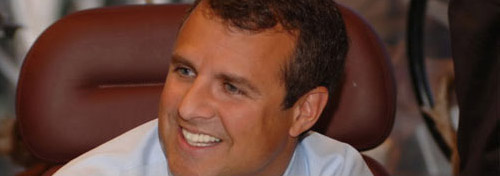Starting in October 2002, our firm began to see a number of claims regarding problems with a coil pack on a 2002 and 2001 1.8T engine in certain VW and Audi cars. Thanks to the B5.5 Auto Forum we are providing information concerning the coil problems, and how it may affect your VW or Audi 1.8T engine.
This FAQ summarizes what’s known about the problems as of early 2003 as reported in the B5.5 Auto group forum. We hope it helps VW and Audi consumers who experience coil pack problems – or those newly afflicted with a failed coil pack.
What are coil packs?
A coil pack sits on top of each cylinder of the engine and serves as the ignition coil to fire the cylinder. Coil packs have been used for a number of years and by a number of different manufacturers.
VWAG uses them in a number of their engines – only the 1.8Ts seem to be affected by the relatively large failure for the B5.5. There have been a few reports of 2001.5 engines being affected but it seems to largely affect 2002 and early 2003 engines. (And, it should be noted that not just Passats are affected. Owners of other VW models and Audi models that use the 1.8T engine are also reporting the same problems.)
There have also been some reports of coil pack failure on W8 engines; however, dealers have advised those owners that the coil pack in the W8 engine differ from those on the 1.8T engine. Moreover, there have been problems cited with coil packs used on VWAG’s VR6 engines; however this engine is not used with the B5.5 and the problem is of a different nature. (VR6 coil packs apparently develop cracks on the housing — some owners report success by using epoxy to re-seal the cracks.)
Who’s affected by the troubled coil packs?
As we understand it, at some point VWAG decided to concentrate the production of coil packs with one manufacturer (Bremi). These coil packs are referred to as the “H” version of the coil pack. (See 1/23/03 update for a letter reported to be received from Bremi about the coil packs they manufactured.)
Note: there are also preliminary reports that “J” style coil packs may also be affected. See updates at end of this FAQ re “J” style coil packs.
It was originally thought that the “H” versions started to be used with the production of 2002 Passats 1.8T engines and ended in July, 2002 with the production of 2003 Passats. However, a few owners of 2001.5 Passats with 1.8T engines have reported similar coil pack failures. Two build dates were 04/01; one was 03/01. Since VWAG uses “running changes” in their production, it’s possible that later model 2001.5s may have the “H” version coil packs. We have confirmed reports from owners of B5.5s with manufacturing dates of 01/01 that they have the earlier “G” style coil packs.
(Note: B5.5s with the 2.8 liter 6 cylinder engine do not appear to be affected by this problem.)
You can determine the date of manufacture of your Passat by checking the sticker on the driver’s door jamb which displays the date of manufacture.
If you wish to inspect your coil packs to see what version you have, you can remove the engine cover and should be able to visually determine which pack your Passat uses. To remove the plastic engine cover, turn the three large screws one quarter turn counterclockwise. they pop right up. Remove engine cover and you’ll see the coil packs — they’re the four roundish black plastic pieces on top of the metal head cover,
If you have difficulty determining the version from this inspection (or want to be absolutely sure), you can remove one and check the part number. Since you already have the engine cover removed, check the coil pack closest to you by putting a screw driver into the left side of the wire harness and gently pulling up until you hear a click. Ease the harness off by pulling while gently moving side to side. Once this harness is off you will see the information on the black plastic where the harness once was.
If it has this part number: 06B 905 115H then you have the “H” version coil pack.
Based on information from members, “J” coil packs were used starting in August, 2002 for 2003 Passat production. We have had a few reports of failed “J” style coil packs and we’re also hearing of a new “K” style coil pack … see updates at the end of this post.
It should be noted that the use of one manufacturer was a cost-reduction plan by VWAG. VWAG’s design of the “H” coil packs is not believed to have been a cost-reduction plan; that is, the insulation problem apparently is caused by the subcontractor’s decisions rather than VWAG’s.
Are all of the 1.8T engines using the “H” coil packs going to have problems?
Not necessarily. It’s difficult to know the full scope of the problem. While many members on Club B5 have reported failure, there are also a number who have either not reported failure or have reported no problems.
Generally, it has not occurred immediately after purchasing the car and some owners have reported that failure occurred only after more than 10,000 miles. Yet others have reported earlier failures. Most of the failures appear to be in areas where the weather is colder; however, some have reported failures in warmer areas. Some have theorized that chipped engines may be more prone to the failure; however, both chipped and non-chipped engines have been affected.
What happens when a coil pack goes bad – how do I know if I have it?
The problem is reported to be caused by inadequate sealant which leaks and lets in moisture which in turn causes the coil pack to short out.
Almost all members report that they experienced a very rough idle and a flashing MIL (Malfunction Indicator Light; also known as a CEL – Check Engine Light) on their dashboard. The engine is very rough and in some cases the car not driveable.
It does not appear that you can identify a potential failure in advance. (Remember, even if you have an “H” style coil pack, it does not appear that all suffer the same insulation problems.)
What should I do if I have the symptoms of a failed coil pack?
If you are experiencing a flashing MIL (same as CEL) and have a rough idle, VWoA recommends you do not drive the car. You should call Vow’s Roadside Assistance (1-800-411-6688) and advise them that you have a flashing MIL (or CEL). Typically, they’ll arrange to have your car towed to a VW dealer. (See also the 1/23 update below)
A note about driving the car with a failed coil pack: VWoA has told owners that driving the car may cause damage to the catalytic converter due to unused fuel contaminating the converter. There is also some speculation by B5.5 drivers that it’s also possible the unused fuel will contaminate the oil on the cylinder wall and get past the rings. Thus, this may result in increased wear on the rings and cylinder wall; moreover, if the fuel enters the crank case the oil can be thinned which may lead to premature wear of bearings.
What happens when it gets to the dealer?
The dealer will run the diagnostic software and advise you of the problem(s). If it is the coil pack(s), dealers have been replacing the coil pack under warranty and the majority of CB5 members have reported that free loaner or rental vehicles have also been provided.
NOTE: There has been wide variability in members reporting length of time to replace the coil pack(s). Some dealers reportedly have them in stock while others have them back ordered. The length of back order also varies based on member reports with some reporting fairly lengthy waits. If I have one bad coil pack, will all of the coil packs be replaced?
We have confirmed report that as of 1/31 VWoA is authorizing the replacement of all coil packs upon the second failure. If your dealer is unwilling to do so, I’d recommend you call VW Customer Service and ask for clarification — some dealers may not have received the information.
Previously, some members have had all four coil packs replaced; however, the majority reported that VWoA only authorized the replacement of the currently affected coil pack. It’s generally believed this limitation was in place because of the back orders VWAG had experienced. See also the 1/31 entry in the update section below.
Will VWoA issue a Recall and proactively replace all “H” coil packs?
We don’t know. VWoA has not released much official information on this problem. In a Boston Globe article (see updates at end of this FAQ), a spokesman indicated that a recall would not be issued.
However, in a letter to dealers (see 1/31/2003 update below), VWoA says:
… even though we are getting a huge share of total replacement part production, we do not yet have enough replacements to replace every coil in every car that might conceivably fail. For the time being we continue to ask that you follow the procedures that have been established to make sure that those customers experience an actual failure can be served.
And, in the directive to its dealers dated 1/31/03, VWoA says:
As ignition coil parts availability increases for these models, customer satisfaction initiatives will be implemented to address these concerns. The first in this series of initiatives is outlined below. As parts availability continues to improve for other models, you will be notified via additional warranty service circulars.
Anything else?
Some consumers have reported that they are carrying a spare “J” style coil pack with them so that it can be used to replace future H” style coil packs if they fail. Nobody has suggested an easy way to identify which coil pack has failed, so if you adopt this approach, you may have some trial and error before you’re able to locate and replace the right coil pack.
At least one consumer plans to replace all their “H” style coil packs with “J” style coil packs in hopes that VWoA will issue a recall and they can be reimbursed.
However, several owners have reported that dealers will not sell the “J” style coil packs except to replace a failed “H” style coil pack(s). Dealers reportedly cite the shortage of available coil packs as the basis of this restriction. Incidentally, several owners also report that their dealers have cannibalized new 1.8Ts with the “J” packs in order to get the ailing
Passats back on the road.
That’s pretty much what’s known right now – we’ll update this information sheet as more information becomes available and hopefully will remove it when the need for it goes away. Good driving!
To learn more about the Pennsylvania & New Jersey Lemon Law please call 1-800-MY-LEMON (1-800-695-3666) or email us.




